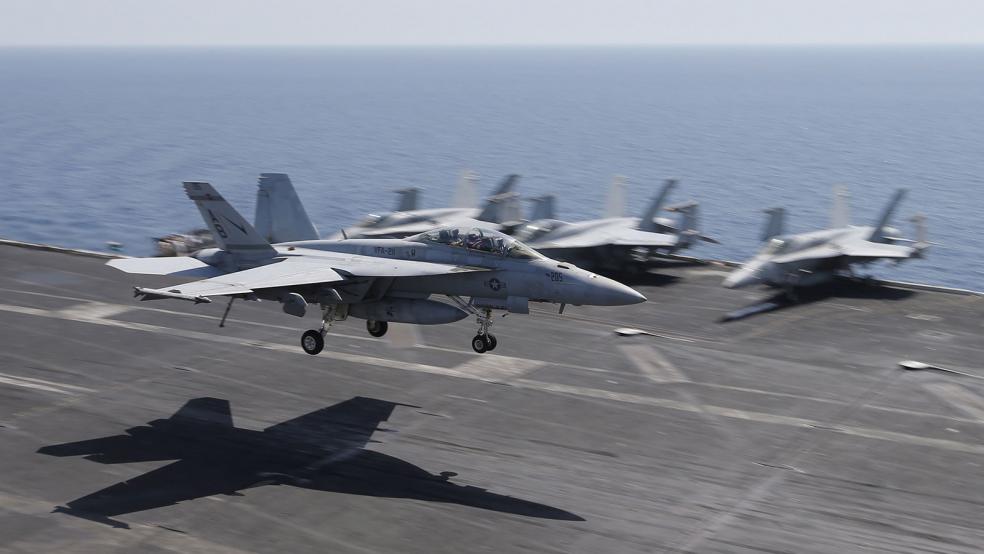The war against ISIS has now cost the United States more than $5 billion, according to the latest Defense Department figures.
As of Oct. 31, the price tag for 450 days of war was $5.012 billion, with an average cost of $11.1 million per day, the Pentagon said. If that daily tab has held steady since then, another $130 million can be added to the overall sticker price.
Related: Here’s Why Congress Still Won’t Okay the Wars in Iraq and Syria
Daily flight operations represent 51 percent of the total cost, or about $2.6 billion. Mission support – for things like personnel, logistics, surveillance and reconnaissance -- made up 26 percent, and munitions accounted for 22 percent.
Broken down by military service, the Air Force claimed 68 percent of the total cost, not surprising given President Obama’s reliance on air power to target ISIS forces.
As of November 3, the U.S. and its coalition partners have executed 7,871 airstrikes, according to a separate Pentagon fact sheet. Around 5,100 of those were in Iraq, while roughly 2,700 were in Syria.
By comparison, the Army has borne only 14 percent of the cost and the Navy 12 percent. U.S. special forces was responsible for the remaining 7 percent, the Pentagon said.
Related: The Pentagon's $766 Million Afghan 'Slush Fund' Comes Under Scrutiny
That last figure could creep up in the wake of Obama’s recent decision to send at least 50 special operations soldiers into Syria to assist rebel groups.
The overall cost of the anti-ISIS campaign could rise sharply as Kurdish soldiers, backed by U.S. and allied warplanes, launch an assault aimed at retaking the strategic Iraqi town of Sinjar from the Islamic State in the hopes of cutting off one of the terror group’s supply lines.
“This is a primary supply line, a key conduit, connector, between Raqqa and Mosul. And if this is indeed severed, then that does mean potentially a significant impact on ISIL's operations in that part of Iraq,” Pentagon press secretary Peter Cook said Thursday during a press briefing.
An estimated 7,500 Kurdish Peshmerga fighters are said to be closing in on the town, which was captured by extremists in August 2015.
Related: The Pentagon Paid Millions to Pro Sports Teams for Military Tributes
“We have to wait to see exactly how this plays out. This could take some time. We don't have a timeline for it,” Cook said.
However, defense officials “do believe that this would have an impact on ISIL, specifically in northern Iraq, and the ability to resupply their forces, the ability to provide new foreign fighters into the fight, and even potentially the ability to interrupt some of their financial flows as well,” he added.





